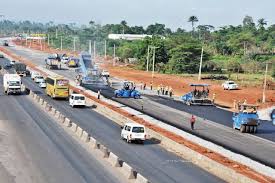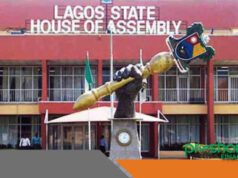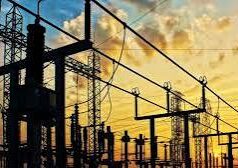
The discourse surrounding the environmental and social ramifications of the expansive 700-kilometre Lagos-Calabar coastal highway is far from over as its construction advances. The progression of this coastal thoroughfare is now encroaching upon residential estates and communities, rendering it increasingly challenging for inhabitants to reach their homes.
At the onset of construction for the initial phase of the project, numerous enterprises and residences were obliterated by the government’s relentless machinery. One of the most significant casualties of this demolition frenzy was the Landmark Group, whose illustrious Beach Resort, appraised at a staggering $200 million, met its demise along with upwards of 80 businesses thriving within the Resort.
Although the first segment, Phase 1 of the highway, extending 30 kilometres, has been inaugurated by President Bola Tinubu, work continues near the vibrant Lekki Free Trade Zone, marked by the construction of the highway’s inaugural flyover bridge at the New Road Junction. Progress is similarly underway in areas such as Okunaja and extending toward the Lagos/Ogun State frontier.
Residents and community members along this corridor are, however, expressing discontent that the highway obstructs access to their residences. “The coastal road is isolating countless apartments from reaching workplaces and even departing their estates. MeadowHall access has been impeded, and the contractor is directing residents to divert at Jakande,” lamented one resident to BusinessDay. The individual, wishing to remain anonymous, emphasized that “minimal or no consideration is being made. This is primarily because an environmental impact assessment (EIA) was neglected before this road commenced.” The source indicated that drainage systems have been compromised and no arrangements are in place for pedestrians.
“Individuals commute to work with uncertainty regarding their return times.”
An inquiry by BusinessDay to validate these residents’ assertions with the Federal Ministry of Works proved fruitless, as text messages received no replies, and phone calls went unanswered.
The encroachment on estates and communities represents yet another obstacle amid the myriad challenges posed by this crucial yet heavily contested infrastructure project. The conglomerate, operating under the Foreign Investors Network of Nigeria (FINN), comprising US-based Nigerians and their American affiliates, has voiced grievances against the federal government and construction titan, Hitech, for the devastation inflicted upon their estate.
At the core of the dispute lies the purported alteration of the original 2006 gazetted alignment of the coastal road, which investors allege was modified without prior consultation, thus impacting their legally sanctioned property—the expansive 18.8-hectare Winhomes Estate.
The investors attested that they secured all requisite building permits and title documents prior to initiating construction. Nonetheless, bulldozers moved in, demolishing segments of the estate to accommodate the revised trajectory of the highway.











